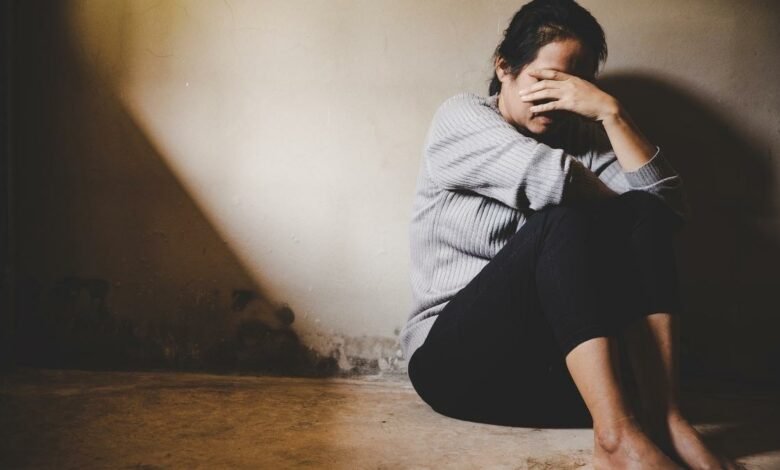“No means No,” unless you are her husband: How marital rape stays legalised in India despite terrorising figures?
According to a report published by the National Family Health Survey in 2016, one out of three married women between the ages 18 and 49 is a victim of physical or sexual abuse, while 12% of married men consider sex as their 'non-negotiable right'!

Hi, do you want to know what a married woman can do if her husband has sexual intercourse with her WITHOUT consent? According to India’s criminal law, she only has two options:
- She could either ‘tolerate’ forceful sex with her husband for the rest of her life;
- Or, she should get herself ‘physically abused’ first to become eligible for lodging a complaint against her husband. In the eyes of the law, her rape ceases to be a crime unless she possesses vibrant marks of physical abuse!
According to a report published by the National Family Health Survey (NFHS) in 2016, every third woman in the age group of eighteen to forty-nine has been a victim of physical or sexual abuse from her husband or partner. The report also revealed that every fifth man in the same age category has had forceful intercourse with his wife. On top of that, another sample survey revealed that 12% of the married men in India considered “sex” to be their non-negotiable right after marriage!
Presently, marital rape in India gets listed as an exception to the section 375 of the Indian Penal Code (IPC). Section 375 of IPC deals defines the term ‘rape’ and excludes two events from getting categorised under this term. First, a medical procedure cannot get constituted as rape. Second, forceful sexual intercourse by a man on his wife is not considered a rape unless the wife’s age is below fifteen.
This article deals with the second exception to section 375 of the IPC and tries to decode the nuances associated with this draconian law.
The history behind the ‘decriminalisation’ of marital rape in India:
Much like many obsolete laws plaguing the Indian society, decriminalisation of marital rape also has its roots in India’s colonial past. In 1736, a British Judge named Sir Matthew Hales came up with the infamous “contractual consent theory,” which, in simple terms, tries to establish that a woman inherently gives her consent to any sexual act once she agrees to marry a man. Hence, for a woman, her ‘matrimonial consent’ transcended any other assent as she got treated no better than a ‘chattel’ (private property) to her husband.
This draconian law found its way into the Indian Penal Code of 1860 and has remained sacrosanct, defying all sense of morality. It is ironic how Britain has long reversed its stand by criminalising marital rape in 1991. But Indian politicians have shown an atypical solidarity by shunning this matter in the parliament each time it gets raised.
Today, more than 150 countries have criminalised marital rape, which includes even Nepal and Bhutan. However, India stands with 31 other countries like Pakistan, Afghanistan, North Korea, and Bangladesh by considering a woman’s modesty as her husband’s property!
In India, marital rape stays decriminalised based on two assumptions:
- Consent in propriety assumes how a woman spontaneously gives consent for ‘sex’ to her husband by agreeing to marry him.
- The expectation of sex by the husband puts a woman under the obligation to fulfil her husband’s sexual urges in return for ‘support and protection.’ Since marriage is widely considered a social precursor to reproduction, a woman has no choice but to satiate her husband’s desires.
From time to time, Indian politicians have leveraged these two assumptions to endorse marital rape. In 2013, after the horrendous Nirbhaya Rape Case, the Congress government set up the JS Verma Committee to review India’s Criminal Laws and suggest amendments to the same.
One of the most prominent recommendations by this Committee was not to consider marital rape as an exception to section 375 of the IPC. The Committee maintained how marital rape was one of the most recurring sources of sexual violence for women in India, and the only way to curb it was to incorporate it under ‘criminal laws.’ The Congress government paid no heed to such a recommendation.
The streak of injustice rendered to married women in farce of ‘marital rape’ continues under the BJP government. In 2022, BJP’s Sushil Doshi bared the nation’s conservative ethos by reiterating, “Criminalisation of marital rape in India will end the institution of marriage.” Even the BJP government, in one of its affidavits submitted before the Supreme Court, maintained, “Criminalisation of marital rape will have a harmful effect on Indian society.”
Why ‘marital rape’ MUST get criminalised in India?
Before getting into ethical or medical grounds, let us emphasise how the exception to section 375 violates the fundamental rights of married women in India. According to Article 14 of the Indian Constitution, each Indian must be equally protected by the law. However, in the case of rape, when a women’s modesty gets outraged by someone other than her husband, she becomes the victim of a crime. On the other hand, if a woman gets raped by her own husband, she cannot do much about it. Thus, it is a brazen violation of her human rights.
We agree that there has been a misuse of criminal law against men in India. The accused in 75% of the rape cases registered in India turn out to be innocent. Hence, the odds of a woman weaponising a ‘marital rape law’ to intimidate or libel her husband cannot get undermined. Furthermore, it is rather difficult to establish whether a wife and her husband had consensual sex or not.
Given the complexity of the matter, the government should actively pay attention to experts in the field and establish a system of checks and balances while drafting a law on ‘marital rape’ instead of sheepishly ignoring it.
Statistics illustrate how ‘forced sex’ is intrinsic to domestic violence in India. At least 45% of the victims of domestic violence have revealed how they get physically and sexually tormented by their husbands. Should these women choose to complain against their torture, the law entitles them to complain under section 498 of the IPC, which only deals with ‘domestic violence.’
Here, the man who raped his wife can get a protection order, a judicial separation order, or an order to pay a mere monetary compensation! The woman, who is a rape victim, gets no compensation for the breach of her mental and physical integrity.
For a woman who gets sexually abused regularly, mental ailments like, Post Traumatic Stress Disorder (PTSD), fear psychosis, Rape Trauma Syndrome (RTS), and stress of unwanted pregnancies become a part of her life. Furthermore, physical damage by rape in the form of vaginal rupture, chronic pain, black eyes, and fractured ribs can prove fatal!
As a society, we ought to take a leap of faith and work actively to ensure that the victims and the alleged perpetrators of ‘marital rape’ have an equal chance to establish their grounds before the judiciary. Putting our faith in the ethical morality of humankind, it is high time we criminalised ‘marital rape.’
